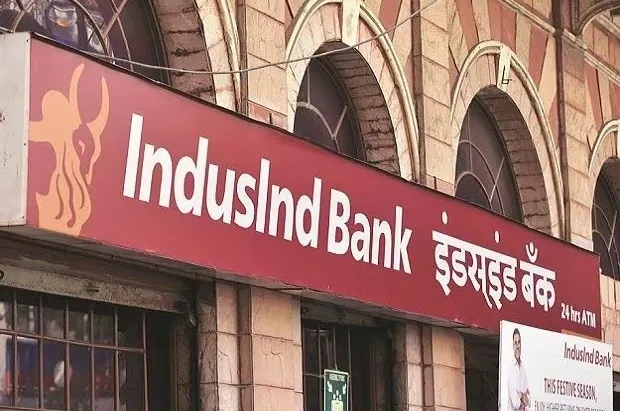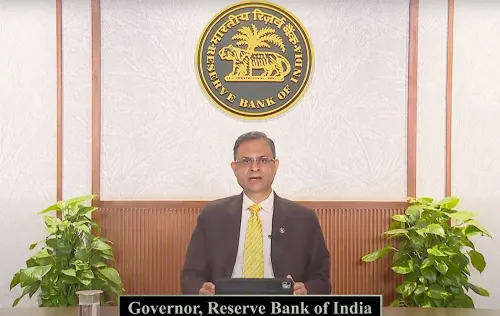Has IndusInd Bank’s Long-Term Debt Instruments Been Placed Under Negative Watch by Crisil?

Synopsis
Key Takeaways
- Crisil has placed IndusInd Bank's long-term debt on negative watch.
- Recent executive resignations have raised concerns.
- The bank is conducting an internal review of its microfinance business.
- Deposits from retail and small businesses have declined.
- Significant discrepancies in derivatives accounting have been reported.
Mumbai, May 8 (NationPress) The global credit rating agency Crisil has officially placed the long-term debt instruments of IndusInd Bank on ‘Rating Watch with Negative Implications.’ This rating action encompasses Rs 4,000 crore in tier II bonds and Rs 1,500 crore in infrastructure bonds.
This decision follows a series of recent events at the bank that have raised alarms regarding its internal controls and the stability of its management.
Crisil's rating adjustment comes in light of the resignations of two senior executives, coupled with the bank’s announcement that its internal audit department is currently reviewing the microfinance sector due to emerging concerns during the finalization of the bank’s accounts.
Earlier in March, IndusInd Bank had disclosed an accounting issue related to certain derivatives, which heightened concerns further.
Although Crisil indicated that the bank hasn't experienced significant outflows in total deposits over the last two months, there has been a decline in deposits from retail and small business clients.
As of March 31, the bank reported total deposits of Rs 4.11 trillion, with a current and savings account (CASA) ratio of 32.8%. This is a slight change from Rs 4.09 trillion in deposits and a CASA ratio of nearly 34.9% as of December 31, 2024.
Retail and small business deposits fell from Rs 1.89 trillion to Rs 1.85 trillion during the same timeframe.
The rating agency has stated it will keep a close watch on the situation, particularly regarding the bank's actions to bolster its financial controls and maintain operational stability.
Crisil will also assess how these issues may influence the bank's profitability and deposit trends.
The situation escalated in March when IndusInd Bank admitted that an internal review had revealed discrepancies in its derivatives portfolio.
The bank estimated this would lead to a 2.35% reduction in its net worth as of December 2024.
Following this, PwC was commissioned to validate these findings and projected a loss of Rs 1,979 crore in the derivatives portfolio as of June 30, 2024, with a post-tax effect of 2.27% on net worth.
Subsequently, the bank engaged Grant Thornton to investigate the root cause of these discrepancies. Their report indicated that incorrect accounting of internal derivative trades, especially during early terminations, led to the recording of notional profits that did not exist.
The final assessment highlighted a total adverse impact on the bank’s profit and loss account amounting to Rs 1,959.98 crore as of March 31.
Despite these setbacks, the rating agency earlier assessed that the bank's capital position and profitability before provisions would be sufficient to absorb the financial impact.









